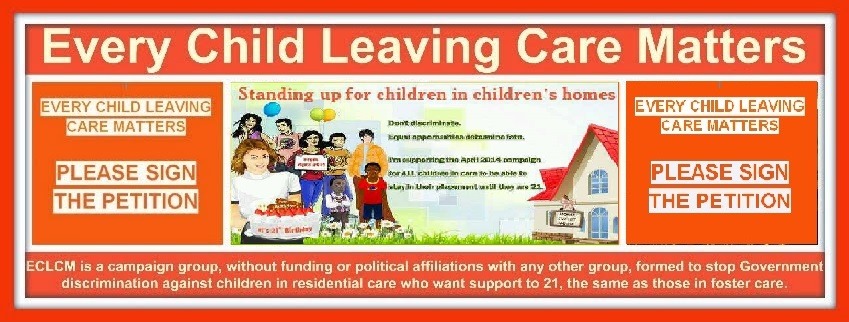I thought I’d share some thoughts on leaving care as the ECLCM campaign approaches its first members’ meeting. It is a personal view based on my own experiences as a care leaver and upon living and working alongside children and young people in care for over half a century.
When I was in care in the 1950’s-1960’s, it could be a very abusive environment. By that I refer to emotional and physical abuse, although I am aware that many kids also suffered sexual abuse as well. Certainly for boys, physical punishment was not unusual and for some like me was commonplace. This was not because the ‘system’ or decision makers were abusive or did not mean well – indeed the Chief Children’s Officer in my city was a care leaver himself, and the Children Act 1948 had been introduced to improve life for children in care. Children’s officers did their best working with the resources they had, which were not very much, and within a society and culture that had little sympathy for children in care. Some might argue that has not changed much.
There was little real preparation for adulthood, and when a young person reached 18, they were on their own. It is a testament to the resilience of young people growing up in care that so many did well and their experiences fed into the campaigns to improve the care system and after care of the later decades.
In my own case, I had my share of physical and emotional beatings in children’s homes, but found solace in school and this probably helped me avoid any drift into the criminal justice system. I was fostered at 12 years of age by an elderly couple, who were ‘left to get on with it’ with me. It is to their credit that they persevered with the challenges from what had become a pretty unpleasant adolescent until I was 18 years of age.
At 18, I was on my own. I left care with no support arrangements in place and absolutely no real preparation for what I would face. It was bad enough to struggle with not knowing what to do or how to do it, but the crushing sense of isolation, worthlessness, terror and anger made me struggle with even basic decisions or interactions with ‘normal’ people. Perhaps inevitably, I became homeless and unemployed.
I was lucky. Fate was good to me. An adult sister (also a product of the care system,) who I barely knew gave me a temporary ‘couch’ to stay on in her flat. Only now as an adult do I realise how kind that was. That couch gave me an address.
I walked the streets looking for work and found an employer who was prepared to take a chance with me. This man took an interest in me, praised me when I showed some promise at work, and sent me to night school to take educational qualifications.
When I was 17 I met a girl and we went out for a while. I contacted her again when I had left care and even though I was a ‘care kid from the wrong side of town’ she agreed to go out with me again. She became my wife. We were married for over 40 years until she was taken by cancer a couple of years ago. Her total belief in me and my ability and her unwavering support was the single most important reason I was able to achieve anything in my life.
The couch at my sister’s could only ever be temporary. I plucked up courage and visited the elderly foster parents I had given hell for six years. I asked them to let me live with them again, and incredibly, they agreed. I lived with them until I married at 21. In later years when I was a social worker and they were elderly and disabled, I was able to return some of their support.
Now I had a job with prospects and an improving education, somewhere to live, and most importantly, people who believed in me and loved me. The potential I had to achieve and the self-belief I needed to do so were able to develop safely, and my adult life began. A long happy married life, a loving family, university and a successful professional career followed.
Had my sister not offered me a couch to sleep on, had my employer not invested in me, had my girl not stood by my side, and had my foster parents not took a chance with me, I doubt I would have ever broken out of the vicious circle of disadvantage known intimately well by so many care leavers. I have little doubt that I would have become a ‘disadvantage statistic’.
That brings me back to the ECLCM meeting. All ECLCM are seeking is for all young people leaving care is to get what I got. To be allowed to stay on with their placement (wherever that is) until they are 21, to have the support of people who care and a start in life that other kids take for granted. With such I support, I was able to build a happy and successful life. Do we want anything less of every other care leaver?
Please support ECLCM and our campaign to gain equal support to at least 21 for all young people leaving care.
ECLCM is a campaign group, without funding or political affiliations with any other group, formed to stop Government discrimination against children in residential care who want support to 21, the same as those in foster care.

No comments:
Post a Comment